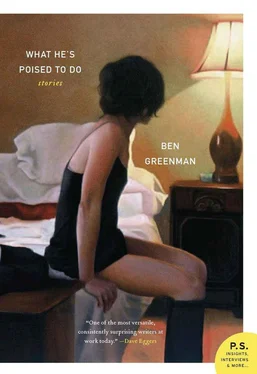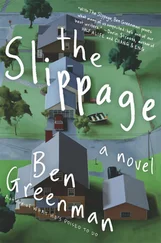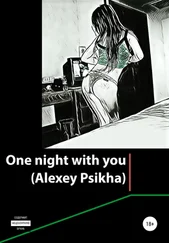The sight of these half-human monsters huddling together beneath the vaulting archways of the station — if the founding architect only knew the ill use to which his wondrous creation would one day be put — sickened me at first, then angered me, and then, finally, struck me stone dumb. What can you say about a species that is so susceptible to the blackening effects of a city, other than that it is weak to the point of rot? It was left to Lily to remark upon the place, once we had boarded the train and were safely on our way. “Beastly,” she said, letting the single word hang like the man’s maimed hand. After a short pause, I took up her thought. “Oh, Lily,” I said, “I am so happy to be traveling with you into the country. It is in a rural setting that a man’s soul — or a woman’s, for that matter — can truly flower. And so I will lavish my attentions on the petals of those flowers.” Whether I said this in so many words or said fewer and imagined the rest does not matter. We were so close at that moment that speech and thought were one and the same. You, too, have experienced this closeness with me, wife, so you will be able to imagine. Lily and I were brought together by our idea of our union, which seems like either a paradox or a tautology but is in fact both. I took Lily’s hand, which was so warm with desire that it seemed to heat the air around us, and pressed it to my breast, and we listened to the click and the clack of the train on the rails and at length fell into faultless sleep.
Time passed. The sun stretched out the shadows of trees, which lay across the tracks like bridges. We crossed under one of those bridges and then the train shuddered to a stop. We were in the village where Mrs. Pritchard lived and where, more important, her house stood amid woods, meadows, and even a little stream that wound through those woods and meadows. I had retained nearly every detail from Mrs. Pritchard’s letter; that fine old woman, though her shaky script betrayed her age, had an appreciation of the power of description that rivaled my own. Lily went out ahead of me, carrying our luggage — we had managed to get most of our clothes in a single hard wheel case, although there were two other small bags that held my books and journals — and I followed. From behind I could read the sentence of her figure (particularly that which lay within parentheses). My mouth began to water. I felt a tremor in my thumb and index finger. Should I feel shame for that reaction? A man’s hunger for a woman is part of nature, wife. In my time with you, I frequently saw the disclosed forms of other women. There is no point in apologizing for this. It was one of the imperfections of our union. I have forgiven you for your part in it, and I know that you will extend me the same courtesy. Since I have been with Lily, I have seen only one other woman in her natural state, and she was seventeen, and as such represented a false promise of fullness and flexibility. Her name was Mona, and she was my student in a course I had designed that sought to communicate the intimate link between poetry and nature. She was a good student, Mona, and she came by one afternoon to discuss the heartlessness of Tennyson’s “In Memoriam.” The topic undid us so completely that we had found ourselves, quite by accident, in my apartment, where I first checked to make sure that Lily was not present and then did my level best to direct the conversation toward those “orbs of light and shade” and those “wild and wandering cries” and away from the inevitable. I was not the teacher I hoped to be, though, because when I paused midway through what I thought was a rather convincing discourse, I saw Mona on the bed and her clothing in a heap on the ground beside it. Her hands were rounded in a kind of cage at the tops of her thighs. She opened the cage.
“These bags are heavy,” Lily said, shattering my reverie.
“Are they?” I said.
“They are.” She set them down. A less trained observer might have read the expression in her eyes as an appeal to me to relieve her of her burden, but I knew it for what it was — a reminder of what would occur later that afternoon, when we had snugged the bags in the corner of our new home. The suitcase that was now at Lily’s feet contained all we would need for the afternoon’s activities, including a hand mirror, a length of rope, and a razor that would prevent her from sinking into a barbarian state, especially about the legs and hips.
“It makes no difference to me,” I said, answering her unasked question. “Dry or with a bit of shaving powder, entirely or in part. You decide.”
She looked at me with feigned confusion — I learned that look from you, and also to dismiss it, and for that I am grateful — and we set off down the road leading to the cottage. Rustic life in all its glory was arrayed for us as if Mrs. Pritchard, or some other benevolent angel, had retained a troupe: there was an old woman waiting for the last of her pigs to ford a small stream and set off for home; there was a younger woman sitting beneath a tree and finishing with the needlework on a large tablecloth; there was a sunburned girl who was running from a sunburned boy toward a large tree that sat center-meadow, a god of the place.
While Lily went ahead with the suitcases, I stopped to inspect a leaf I saw at the side of the road. It reminded me, to be frank, of you: it was not a particularly spectacular specimen, and yet it was more spectacular than anything I could have imagined. The edge had browned slightly, and with it the vein skeleton. A corner had been eaten away by a beetle or one of the other divinely low creatures that flourished in this part of the country. It was a shabby thing that still communicated an indisputable beauty. “Lily,” I called, but my voice was faint from wonder, and she did not hear me. I gripped that leaf by its petiole and took it with me, telling myself that this piece of evidence of the majesty of the everyday would be a great help when Lily and I reached our destination, dropped our bags, and settled into the narrow but sturdy bed that had been described to us in our correspondence with Mrs. Pritchard. I could place it on a table and watch it while the world turned upside down. Nature would steady us both.
I worried that Lily was so far up the path that she would reach the cottage before me, so I hurried to arrive before her. You know how fast I can run when I try. Still, this was done at great sacrifice to village life, or rather to my enjoyment of village life: to have any chance of arriving at the house before Lily, I had to rush through the characteristic scenes that were in abundance all around me, and as a result I have only the blurriest recollection of them. I do know that I saw a number of beautifully picturesque arrangements of flowers in neat little window boxes in front of neat little houses. I saw a woman spinning with a distaff in an enclosed porch. I saw a priest sitting sociably beside a young woman whose face was flushed a deep pink from what I can only assume was a sudden appreciation of the Lord’s word.
My heart ached as I passed by these simple villagers, these simple tiles of benignity in the mosaic of the village, for I knew that it wanted little more than to settle among them and explore the common lines of fellowship and companionship. There would be time for that after the house, and Mrs. Pritchard’s narrow but sturdy bed. Lily was ecstatic to be in the country. I had sensed it even before she herself had sensed it. Like you, she had spent most of her life in the city. Like you, she had been raised among its smokestacks and alleyways and fire escapes, and its adulterations were knit into her bones. On the train, Lily told me that one of her earliest memories involved playing hopscotch as a child, and confessed that as she grew older the numbers on the board came to represent a different sort of progress. I drew out from her a clearer sense of her meaning. She told me that she assigned a number to different levels of excitement. “Are you excited today?” I asked. She held up one hand, I assumed to give me a measure of her feelings. As was her habit, she did not offer a full account; she was generally embarrassed by the passions she felt. But her five fingers were stiffly raised. I verified her excitement by the traditional means, holding up three fewer, just before the conductor arrived to punch our ticket. When he departed, she drew me out as well, to the same end.
Читать дальше












